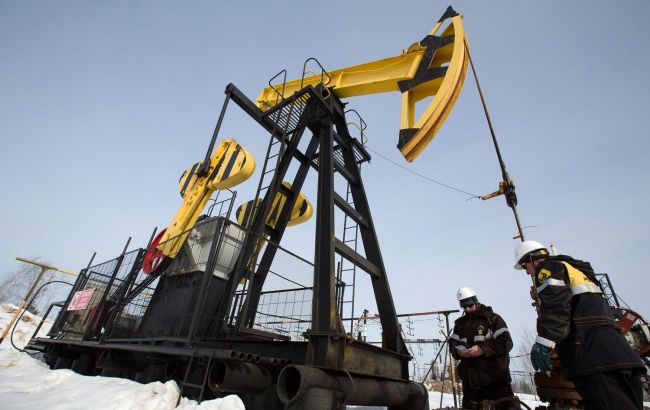Kremlin's oil income drops to near five-year low in August
 Photo: Ukrainian drones and EU sanctions reduced the Kremlin's revenues for the war (Getty Images)
Photo: Ukrainian drones and EU sanctions reduced the Kremlin's revenues for the war (Getty Images)
Russia’s revenues from the sale of oil and oil products in August decreased to one of the lowest levels since the beginning of the war against Ukraine, according to the International Energy Agency (IEA).
The Russian energy sector experiences pressure because of strikes by Ukrainian drones on oil refineries and export pipelines, as well as because of Western sanctions.
IEA data about the fall in revenue
According to information from the agency, Russia’s revenues decreased by 920 million dollars compared with July and amounted to 13.51 billion dollars. This is connected with the reduction of export of crude oil and fuel, as well as the increase of the discount on the grade Urals to about 56 dollars per barrel, which is lower than the Western price ceiling of 60 dollars.
The IEA noted that Russia’s revenues from oil exports remain close to a five-year minimum, which reduces tax receipts and deepens the country’s economic decline.
Reduction of exports and production
According to data from the agency, the export of Russian oil and fuel in August decreased by 70 thousand barrels per day to 7.3 million barrels per day. Deliveries of crude oil decreased by 30 thousand barrels per day, of oil products by 40 thousand barrels.
Besides that, production of oil in Russia in August decreased by 30 thousand barrels per day and amounted to 9.3 million barrels per day. These indicators correspond to the production quotas established by OPEC+.
From 2026 in the EU will take effect a ban on import of oil products produced from Russian oil. This can reduce production and change trade routes in the coming months, as noted in the IEA.
The EU, within the framework of the 18th package of sanctions against Russia, lowered the ceiling of the price on Russian oil from 60 to 47.6 dollars. The decision took effect on 3 September.
India demanded that Russia increase discounts on oil for October. Buyers stated that the discount must expand to approximately 10 dollars per barrel to the price of Brent, to correspond to the price ceiling. For comparison, in September, discounts amounted to only 2-3 dollars per barrel.

